PTSD Treatment in Tampa: Real Help, Real Healing Without Just More Meds
At Genesis Brain Institute, we believe PTSD doesn’t define your future. Whether you or someone you love is struggling with trauma, there’s a better way forward—based on brain science, not just prescriptions.

What Is PTSD and Who Can Get It?
Post-Traumatic Stress Disorder (PTSD) happens when your brain gets “stuck” after a scary or overwhelming event. It’s not just for soldiers or first responders. PTSD can affect anyone—kids, parents, survivors of accidents or abuse, or even someone who heard about something traumatic happening to a loved one.
You don’t have to be in danger yourself to develop PTSD. Just witnessing something or hearing about it can deeply affect your brain.
For more on how trauma affects the brain, visit the National Institute of Mental Health PTSD resource.
What Is Complex PTSD (C-PTSD) and How Is It Different?
- “PTSD only affects veterans.” → False. Anyone can develop PTSD.
- “If it happened a long time ago, it shouldn’t still bother me.” → Trauma has no timeline.
- “PTSD means I’m weak.” → Not at all. PTSD is a brain response to overwhelming stress, not a sign of weakness.
What Are the Signs and Symptoms of PTSD?
PTSD symptoms can include:
- Flashbacks or nightmares
- Avoiding people, places, or memories
- Feeling jumpy, angry, or scared
- Trouble sleeping or concentrating
- Negative thoughts like “I’m not safe” or “I can’t trust anyone”
- Feeling numb or disconnected
These symptoms must last more than a month and disrupt your daily life. But even if you don’t meet all the criteria, you still deserve help and healing.
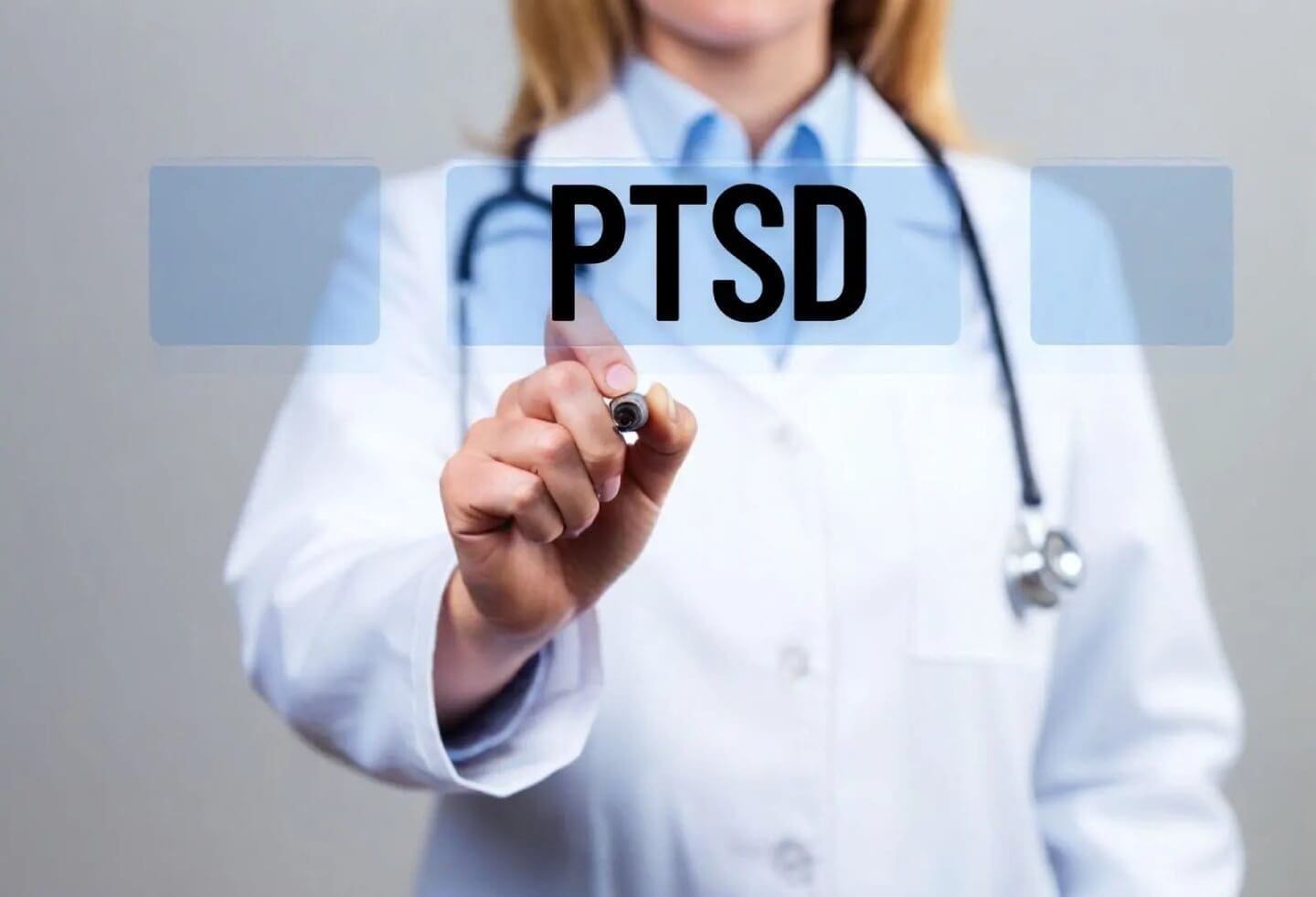

What Are Common Misconceptions About PTSD?
- “PTSD only affects veterans.” → False. Anyone can develop PTSD.
- “If it happened a long time ago, it shouldn’t still bother me.” → Trauma has no timeline.
- “PTSD means I’m weak.” → Not at all. PTSD is a brain response to overwhelming stress, not a sign of weakness.
What Are the Long-Term Benefits of Treating PTSD?
Healing PTSD can lead to:
- Better sleep and focus
- More joy and peace in daily life
- Stronger relationships
- Greater confidence and calm
- A restored sense of safety and control
Recent data from the National Institute of Mental Health (NIMH) shows that early and consistent treatment—especially brain- and trauma-based therapies—can lead to lasting recovery for many people with PTSD.
Why Is PTSD a Brain Condition—Not Just a Mental One?
Mental health begins in the brain. When trauma hits, it changes how parts of your brain work—like the fear center, memory systems, and areas that process sights and sounds. Healing those systems can help restore calm, clarity, and connection.
Many people with PTSD show excessive high beta activity on brain scans—especially in visual and emotional centers. That explains why they feel hyperalert, overwhelmed, and unable to rest even in safe environments.
What Makes Genesis Brain Institute Different?
We treat PTSD from every angle:
We go deeper than standard mental health assessments. Our diagnostic process includes:
- Brain-focused diagnostics (qEEG, cognitive testing)patterns
- Innovative therapies (TMS, EMDR, GammaCore, Neurofeedback)
- Compassionate mental health counseling
- A faith-driven mission for healing and hope
- Tailored, not templated care plans
You’re not a diagnosis. You’re a person with a story that matters.
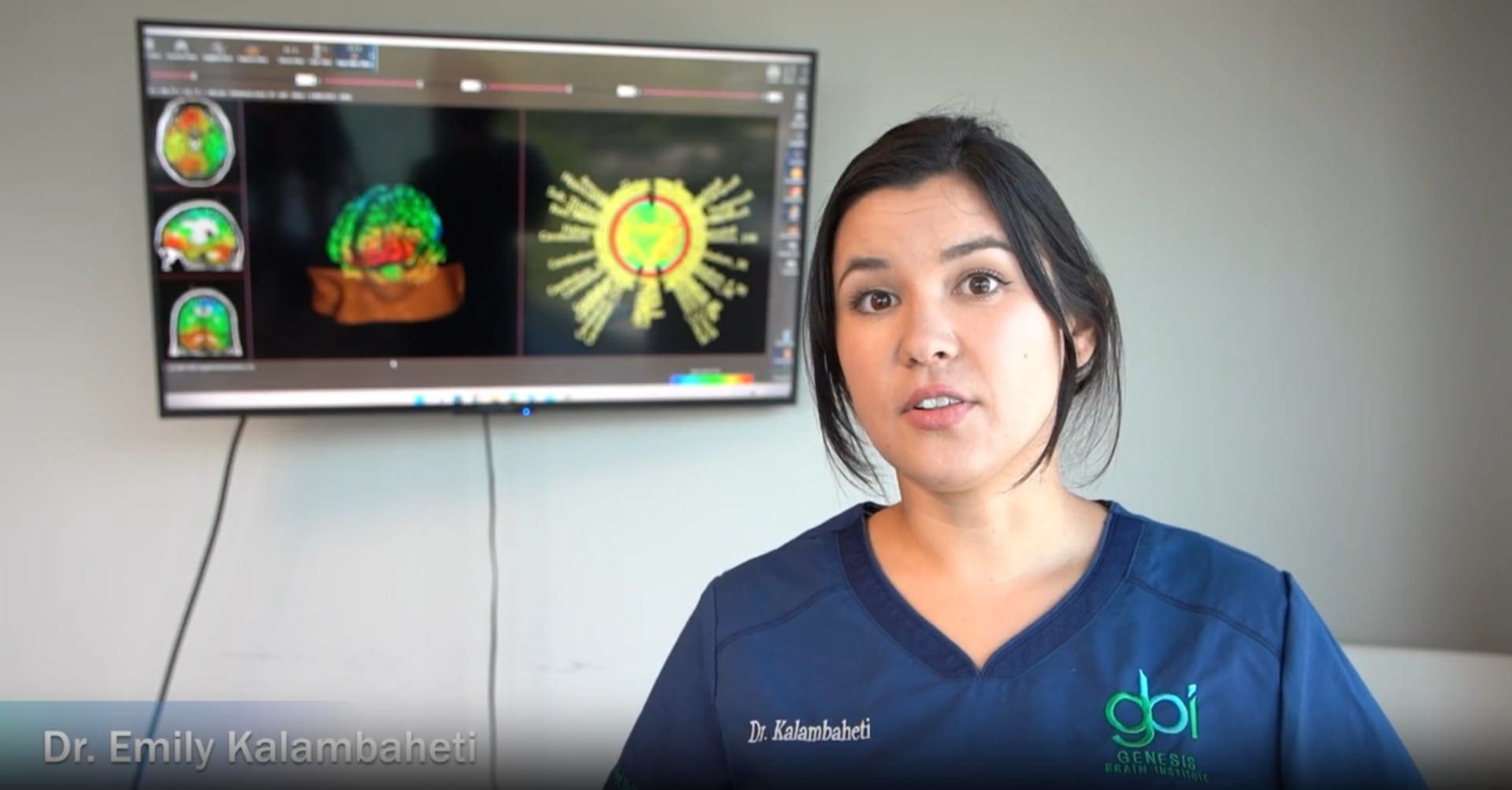
How Do We Diagnose PTSD at Genesis?
We go deeper than standard mental health assessments. Our diagnostic process includes:
- qEEG Brain Mapping to see brainwave patterns
- Cognitive and memory testing to identify how PTSD affects attention, memory, and mental clarity
- Visual and balance testing to detect subtle brain stress and disorientation
We don’t guess. We measure. Your brain tells us what it needs.
How Does Our Mental Health Counselor Support Your Healing Journey?
Our licensed mental health counselor works hand-in-hand with your brain-based treatment plan. They help you:
- Safely talk through your story
- Process painful memories
- Build new coping skills
- Feel seen, heard, and understood
It’s not either/or. It’s brain healing and emotional support—together.
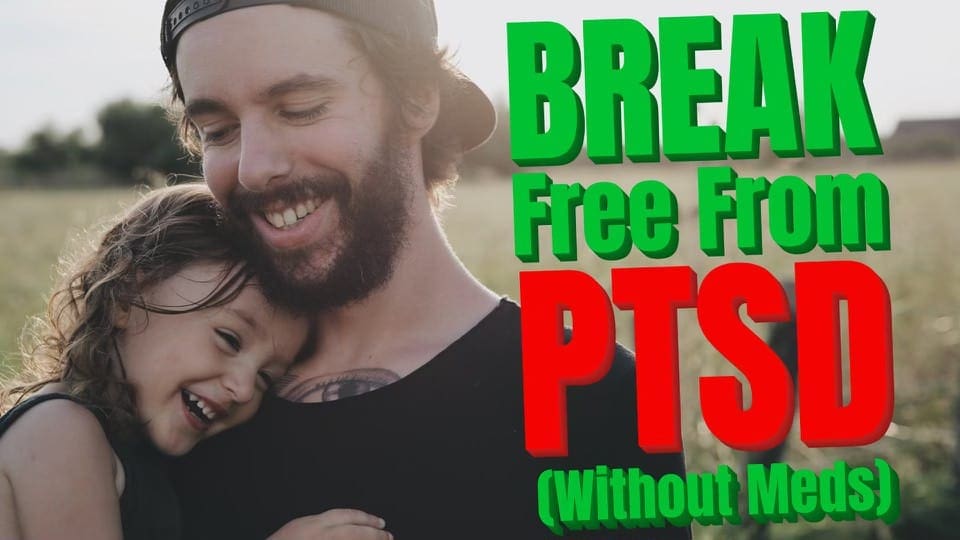

What Should You Expect During Your First PTSD Therapy Session?
We start with:
- A warm welcome and intake
- A review of your trauma history (as much as you’re comfortable sharing)
- Brain and symptom evaluations
- A custom plan built for your unique needs
You’re never rushed, judged, or pressured.
How Do We Customize PTSD Treatment Plans at Genesis?
We don’t use cookie-cutter programs. Your treatment is:
- Based on your brain scans
- Built with input from you, your counselor, and our medical team
- Adjusted regularly based on how your brain and symptoms are responding
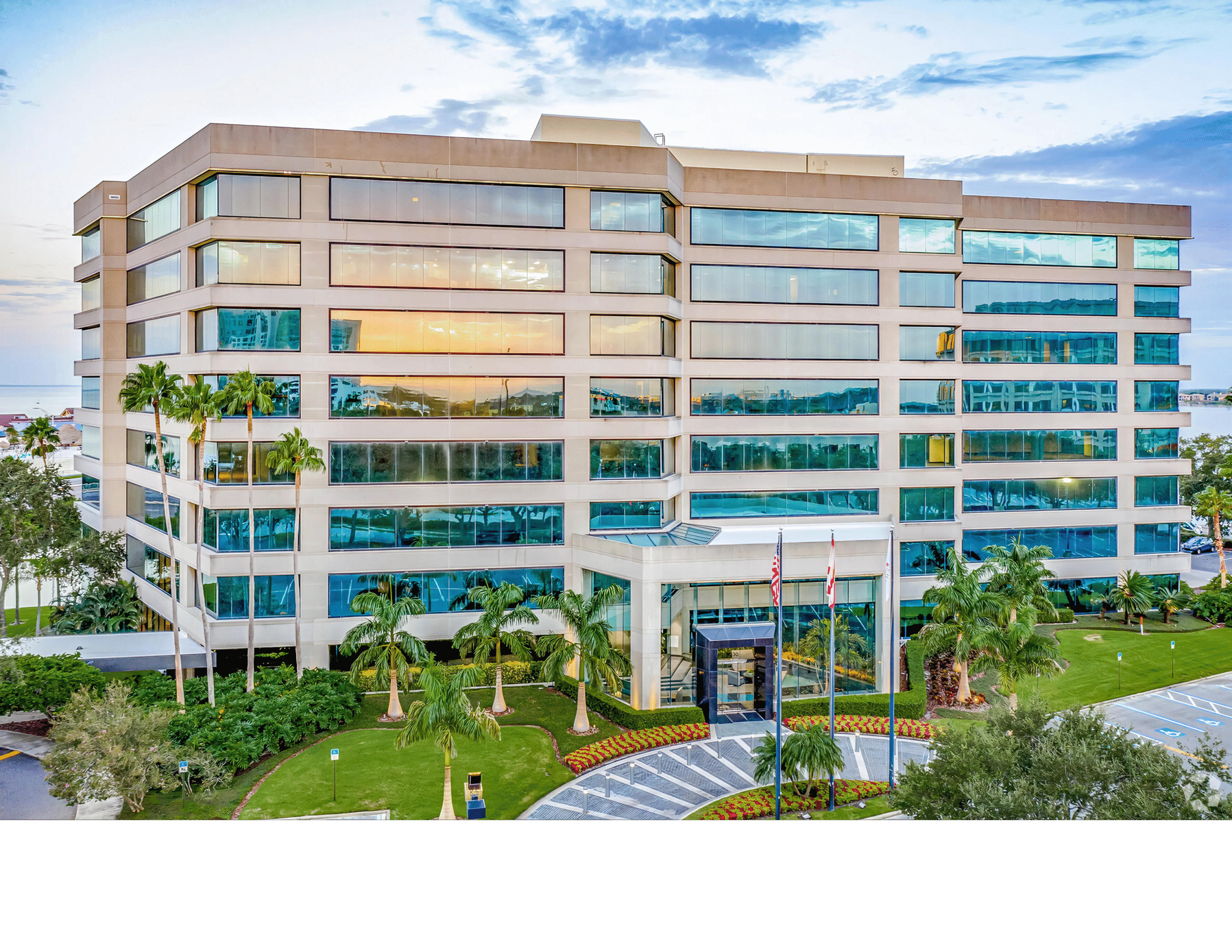
What Are the Best Non-Drug Treatments for PTSD?
A groundbreaking 2024 study published in the journal Brain Stimulation revealed a remarkable result: 100% of participants no longer met the criteria for PTSD six months after undergoing therapy combined with Vagus Nerve Stimulation (VNS).
This study shows the incredible power of combining traditional trauma therapies with neurobiological tools like VNS to boost healing and neuroplasticity.
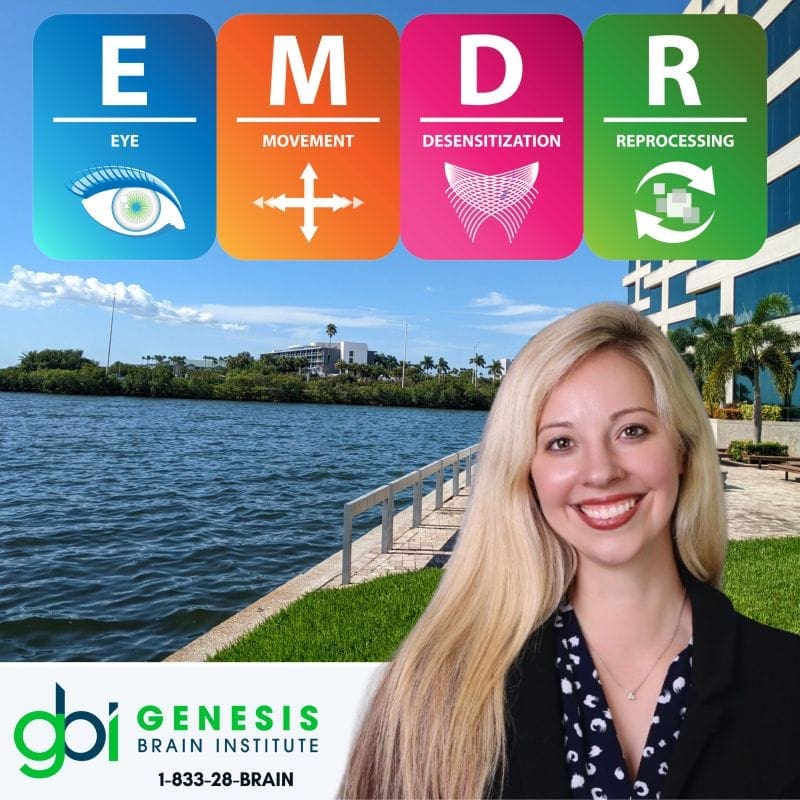
A groundbreaking 2024 study published in the journal Brain Stimulation revealed a remarkable result: 100% of participants no longer met the criteria for PTSD six months after undergoing therapy combined with Vagus Nerve Stimulation (VNS).
This study shows the incredible power of combining traditional trauma therapies with neurobiological tools like VNS to boost healing and neuroplasticity.
Read more about the study here:
- Neuroscience News coverage of the study
- Original study in Brain Stimulation Journal
EMDR Therapy
Uses eye movements or gentle vibrations to reduce the emotional pain from trauma.
Neurofeedback
Trains your brain to calm itself and return to a healthy rhythm.
TMS (Transcranial Magnetic Stimulation)
Gentle magnetic pulses help regulate mood, energy, and sleep.
GammaCore Vagus Nerve Stimulation
Stimulates the vagus nerve to calm your nervous system and support healing.
HBOT (Hyperbaric Oxygen Therapy)
Increases oxygen to the brain to support faster healing.
Photobiomodulation (Light Therapy)
Reduces brain inflammation and supports balance in brain activity.
Frequently Asked Questions About PTSD (From Real People Online)
If you’re searching for PTSD treatment in Tampa, Florida, you’re not alone. Many individuals in Tampa and surrounding areas are asking the same questions—and we’re here to answer them based on science, compassion, and years of experience.
Here are more real questions people are asking online about PTSD—and how we answer them at Genesis Brain Institute:
Why do I feel worse after therapy sessions?
Talking through trauma can temporarily stir up difficult feelings. That’s why we combine therapy with neuro-regulation (like neurofeedback or vagus nerve stimulation) to help your brain stay calm while you heal.
What if I’m too scared to talk about it?
You don’t have to relive everything to get better. Some therapies like neurofeedback and GammaCore work even without talking. EMDR also helps without needing detailed stories.
Can kids and teens get PTSD treatment at Genesis?
Yes. We work with children, teens, and adults. Many kids with anxiety, sleep problems, or focus issues have hidden trauma—and healing their brain early can change everything.
What if I don’t want to take medication?
You’re not alone. Most of our patients prefer non-medication paths first. Our team focuses on healing the root cause, not masking symptoms.
Can PTSD cause physical symptoms?
Yes. PTSD doesn’t just affect the mind—it affects the body too. You might feel chest tightness, muscle tension, headaches, gut issues, or even dizziness. That’s because PTSD activates the fight-or-flight system. At Genesis, we calm both the brain and body with treatments like vagus nerve stimulation, neurofeedback, and biofeedback.
How do I know if it's PTSD or something else?
The symptoms of PTSD often overlap with anxiety, depression, ADHD, or even brain injury. That’s why we use qEEG brain mapping and other assessments to pinpoint what’s really going on. Many patients come in thinking they have one condition, but brain scans tell a deeper story.
What if I feel numb or nothing at all?
Emotional numbness is a common PTSD symptom—your brain is trying to protect you. But shutting down feelings also shuts down joy, connection, and peace. Healing the brain helps restore emotional range, so you can feel safe enough to feel again.
Can PTSD show up years later?
Absolutely. Some people function for years after a trauma, only to find their brain “cracks” under pressure later. This is common after burnout, illness, or another stressor. If old trauma is surfacing now, it means your brain is ready to heal it.
Can faith and science work together in healing PTSD?
Yes. At Genesis, we believe in both. Science helps us measure brain function and deliver results. Faith gives us purpose, hope, and resilience. You can heal the brain and nourish the soul at the same time.
Are there PTSD treatment centers near me in Tampa, FL?
Yes. Genesis Brain Institute is located right here in Tampa, Florida. We specialize in brain-based treatment for PTSD and serve clients from all over the state. Whether you’re looking for an alternative to medication or a second opinion, our Tampa team is ready to help.
How do I convince a loved one to get help for PTSD?
Start with compassion. Share what you’ve noticed. Tell them they’re not alone and that help exists. Many people in Tampa suffer silently. Simply saying, “You matter and I’ll go with you,” can be the first step toward healing.
What makes PTSD worse?
Stress, poor sleep, isolation, and avoiding the issue altogether can all make PTSD worse. At Genesis, we help break this cycle by providing a safe space, a proven plan, and a team that walks with you every step of the way.
Can PTSD treatment help me even if I’ve had it for years?
Yes. Whether your trauma happened 6 months ago or 40 years ago, your brain can still change and improve. Neuroplasticity means it’s never too late to start healing—especially with the right team and tools available here in Tampa, FL. Yes. At Genesis, we believe in both. Science helps us measure brain function and deliver results. Faith gives us purpose, hope, and resilience. You can heal the brain and nourish the soul at the same time. You’re not alone. Most of our patients prefer non-medication paths first. Our team focuses on healing the root cause, not masking symptoms.
Can PTSD Symptoms Return After Treatment?
Sometimes a new event or trigger can bring symptoms back. But with brain-based healing and support, most people do well long-term. If symptoms return, we’re here to help quickly and compassionately.
Is It Ever Too Late to Get Help for PTSD?
Never. Whether the trauma happened last year or 30 years ago, your brain can still heal. Neuroplasticity means your brain can change, grow, and get better at any age.
How Can Family and Friends Help Someone with PTSD?
Here’s how to support a loved one:
- Be patient and don’t force them to talk
- Listen without judgment
- Encourage professional help
- Learn about PTSD so you understand what they’re going through
Healing happens faster with support.
What Self-Help Tips Support PTSD Recovery?
In addition to professional care, try:
- Deep breathing and grounding techniques
- Gentle exercise
- Writing in a journal
- Spending time with trusted people
- Practicing gratitude or prayer
- Limiting overstimulation (bright lights, noise, screens)
- Creating a consistent sleep routine
Ready to Reclaim Your Life from PTSD?
At Genesis Brain Institute, we blend brain science, proven therapies, and compassionate care to give you a new beginning. You’re not alone. And your brain isn’t broken. It just needs the right kind of support.
Schedule your brain scan today and take the first step toward healing.
<script type="application/ld+json">{
"@context": "https://schema.org",
"@type": "FAQPage",
"mainEntity": [{
"@type": "Question",
"name": "Why do I feel worse after therapy sessions?",
"acceptedAnswer": {
"@type": "Answer",
"text": "Talking through trauma can temporarily stir up difficult feelings. That’s why we combine therapy with neuro-regulation (like neurofeedback or vagus nerve stimulation) to help your brain stay calm while you heal."
}
},{
"@type": "Question",
"name": "What if I’m too scared to talk about it?",
"acceptedAnswer": {
"@type": "Answer",
"text": "You don’t have to relive everything to get better. Some therapies like neurofeedback and GammaCore work even without talking. EMDR also helps without needing detailed stories."
}
},{
"@type": "Question",
"name": "Can kids and teens get PTSD treatment at Genesis?",
"acceptedAnswer": {
"@type": "Answer",
"text": "Yes. We work with children, teens, and adults. Many kids with anxiety, sleep problems, or focus issues have hidden trauma—and healing their brain early can change everything."
}
},{
"@type": "Question",
"name": "What if I don’t want to take medication?",
"acceptedAnswer": {
"@type": "Answer",
"text": "You’re not alone. Most of our patients prefer non-medication paths first. Our team focuses on healing the root cause, not masking symptoms."
}
},{
"@type": "Question",
"name": "Can PTSD cause physical symptoms?",
"acceptedAnswer": {
"@type": "Answer",
"text": "Yes. PTSD doesn’t just affect the mind—it affects the body too. You might feel chest tightness, muscle tension, headaches, gut issues, or even dizziness. That’s because PTSD activates the fight-or-flight system. At Genesis, we calm both the brain and body with treatments like vagus nerve stimulation, neurofeedback, and biofeedback."
}
},{
"@type": "Question",
"name": "How do I know if it's PTSD or something else?",
"acceptedAnswer": {
"@type": "Answer",
"text": "The symptoms of PTSD often overlap with anxiety, depression, ADHD, or even brain injury. That’s why we use qEEG brain mapping and other assessments to pinpoint what’s really going on. Many patients come in thinking they have one condition, but brain scans tell a deeper story."
}
},{
"@type": "Question",
"name": "What if I feel numb or nothing at all?",
"acceptedAnswer": {
"@type": "Answer",
"text": "Emotional numbness is a common PTSD symptom—your brain is trying to protect you. But shutting down feelings also shuts down joy, connection, and peace. Healing the brain helps restore emotional range, so you can feel safe enough to feel again."
}
},{
"@type": "Question",
"name": "Can PTSD show up years later?",
"acceptedAnswer": {
"@type": "Answer",
"text": "Absolutely. Some people function for years after a trauma, only to find their brain “cracks” under pressure later. This is common after burnout, illness, or another stressor. If old trauma is surfacing now, it means your brain is ready to heal it."
}
},{
"@type": "Question",
"name": "Can faith and science work together in healing PTSD?",
"acceptedAnswer": {
"@type": "Answer",
"text": "Yes. At Genesis, we believe in both. Science helps us measure brain function and deliver results. Faith gives us purpose, hope, and resilience. You can heal the brain and nourish the soul at the same time."
}
},{
"@type": "Question",
"name": "Are there PTSD treatment centers near me in Tampa, FL?",
"acceptedAnswer": {
"@type": "Answer",
"text": "Yes. Genesis Brain Institute is located right here in Tampa, Florida. We specialize in brain-based treatment for PTSD and serve clients from all over the state. Whether you’re looking for an alternative to medication or a second opinion, our Tampa team is ready to help."
}
},{
"@type": "Question",
"name": "How do I convince a loved one to get help for PTSD?",
"acceptedAnswer": {
"@type": "Answer",
"text": "Start with compassion. Share what you’ve noticed. Tell them they’re not alone and that help exists. Many people in Tampa suffer silently. Simply saying, “You matter and I’ll go with you,” can be the first step toward healing."
}
},{
"@type": "Question",
"name": "What makes PTSD worse?",
"acceptedAnswer": {
"@type": "Answer",
"text": "Stress, poor sleep, isolation, and avoiding the issue altogether can all make PTSD worse. At Genesis, we help break this cycle by providing a safe space, a proven plan, and a team that walks with you every step of the way."
}
},{
"@type": "Question",
"name": "Can PTSD treatment help me even if I’ve had it for years?",
"acceptedAnswer": {
"@type": "Answer",
"text": "Yes. Whether your trauma happened 6 months ago or 40 years ago, your brain can still change and improve. Neuroplasticity means it’s never too late to start healing—especially with the right team and tools available here in Tampa, FL. Yes. At Genesis, we believe in both. Science helps us measure brain function and deliver results. Faith gives us purpose, hope, and resilience. You can heal the brain and nourish the soul at the same time. You’re not alone. Most of our patients prefer non-medication paths first. Our team focuses on healing the root cause, not masking symptoms."
}
},{
"@type": "Question",
"name": "Can PTSD Symptoms Return After Treatment?",
"acceptedAnswer": {
"@type": "Answer",
"text": "Sometimes a new event or trigger can bring symptoms back. But with brain-based healing and support, most people do well long-term. If symptoms return, we’re here to help quickly and compassionately."
}
},{
"@type": "Question",
"name": "Is It Ever Too Late to Get Help for PTSD?",
"acceptedAnswer": {
"@type": "Answer",
"text": "Never. Whether the trauma happened last year or 30 years ago, your brain can still heal. Neuroplasticity means your brain can change, grow, and get better at any age."
}
},{
"@type": "Question",
"name": "How Can Family and Friends Help Someone with PTSD?",
"acceptedAnswer": {
"@type": "Answer",
"text": "Here’s how to support a loved one:
1. Be patient and don’t force them to talk
2. Listen without judgment
3. Encourage professional help
4. Learn about PTSD so you understand what they’re going through
Healing happens faster with support."
}
},{
"@type": "Question",
"name": "What Self-Help Tips Support PTSD Recovery?",
"acceptedAnswer": {
"@type": "Answer",
"text": "In addition to professional care, try:
1. Deep breathing and grounding techniques
2. Gentle exercise
3. Writing in a journal
4. Spending time with trusted people
5. Practicing gratitude or prayer
6. Limiting overstimulation (bright lights, noise, screens)
7. Creating a consistent sleep routine"
}
}]
}</script>
